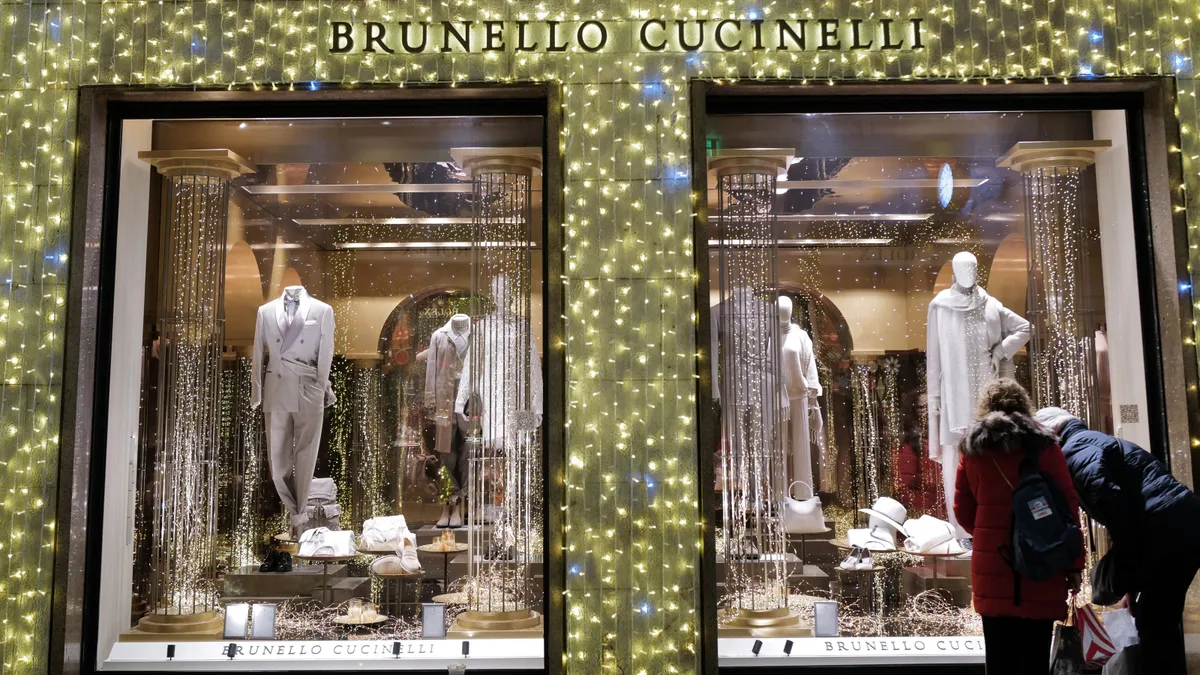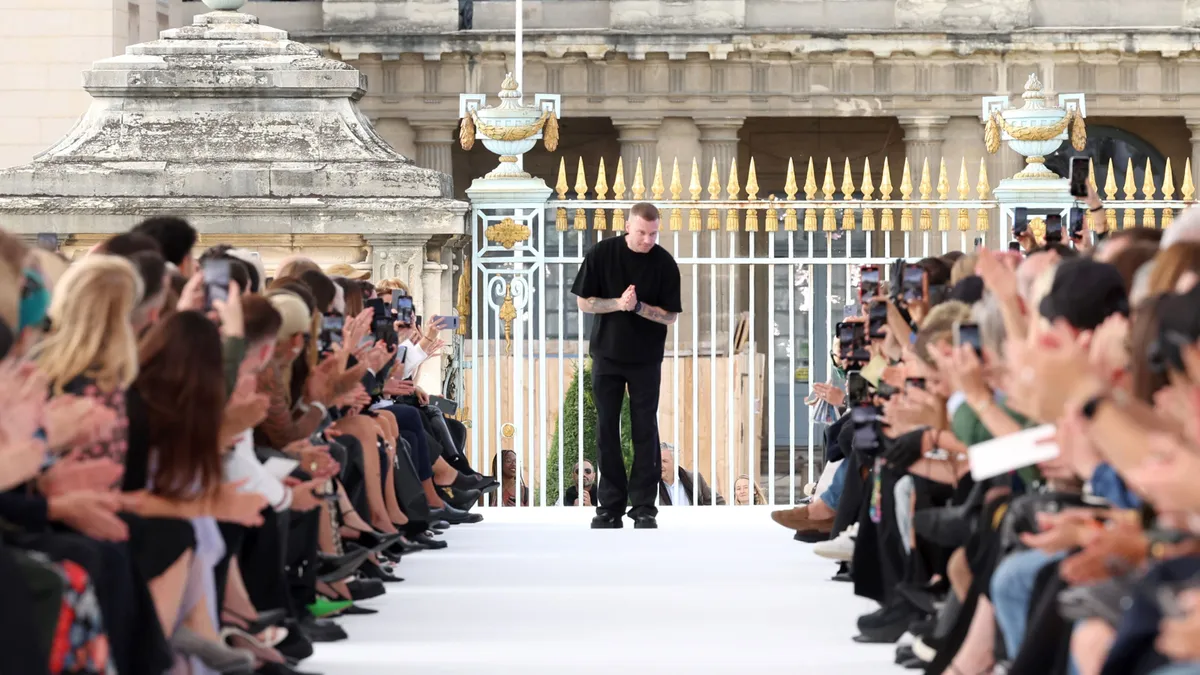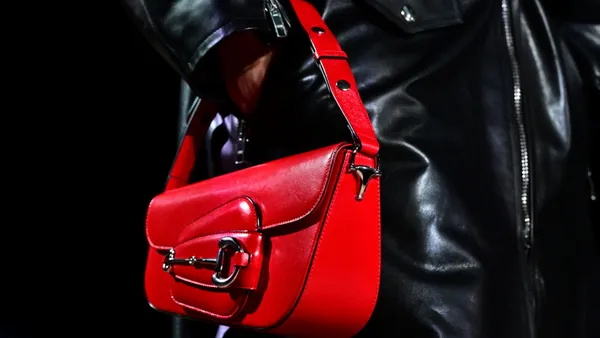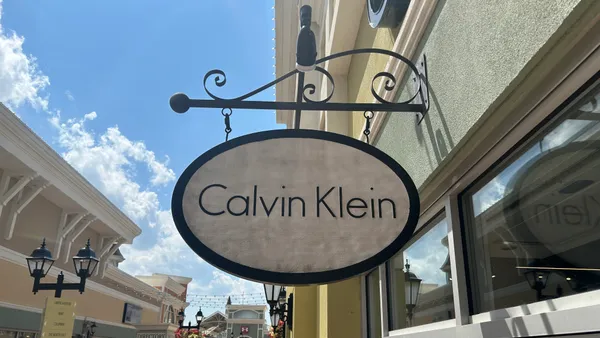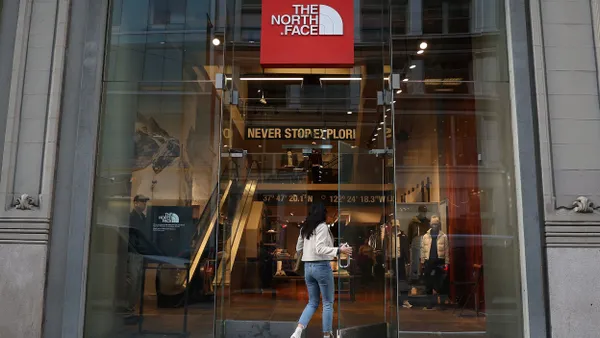Dive Brief:
- Brunello Cucinelli reported preliminary outstanding revenue of 1.27 billion euros, or about $1.3 billion, for fiscal 2024, representing a year-over-year growth of 12.2%, according to a Monday earnings report.
- Sales in the Americas were up 17.8% for the period, while sales in Asia were up 12.6% and sales in Europe up 6.6%. Retail rose 14%, and wholesale increased 8.8% year over year.
- The company predicted revenue growth of about 10% for the years 2025 and 2026 and “healthy and balanced profits” due to “an important moment of great positivity for the brand, the good quality of sales in the past year and the very positive start to 2025.”
Dive Insight:
Many luxury firms, including LVMH, Kering and Richemont, which reports earnings later this week, are struggling with financial declines amid a continuing sector slowdown. However, other companies such as Prada Group and Hermès have posted recent double-digit revenue increases similar to Brunello Cucinelli.
The disparity could have to do with how quiet luxury’s customer base approaches the brands it prioritizes. The category’s resilience is driven by its appeal to customers who are loyal, affluent and who prioritize intrinsic value over fashion-driven consumption, according to Yanmei Tang, an analyst at Third Bridge.
“The success of Hermès during past economic downturns demonstrates the enduring strength of this model, with Brunello Cucinelli following a similar path,” Tang said in emailed comments.
In Monday’s earnings report, Brunello Cucinelli, the company’s executive chairman and creative director, attributed positive earnings to customer loyalty and the brand’s unique place in the luxury marketplace.
“It has been a particularly meaningful year for consolidating our style and identity, firmly anchored in the concept of absolute luxury characterised by exclusivity, quality, and craftsmanship,” Cucinelli said.
The company’s cross-generational relevance gave the quiet luxury brand stability and longevity, Tang said, adding that its pricing strategy helped to align it with top-tier luxury houses and create relationships with high-net-worth clients.
Cucinelli said the company is looking to forge deeper connections.
“During this time, which we call tempus novum, we have launched within the company our ‘project for the soul,’ which simply consists of living and working whilst listening to and supporting one another, especially when that unwelcome guest of ours — which we might call the ‘malady of the soul’ — becomes more pressing and burdensome,” he said. “At such times, perhaps talking and actively listening can help to heal the soul. These premises, considerations and reflections, lead us to envision, for both 2025 and 2026, a gracious, healthy, and sustainable revenue growth of around 10%, accompanied by balanced profits.”
The company added that early reactions to its fall-winter 2025 women’s pre-collection have been positive, and that “combined with the exclusive positioning and promising prospects in all geographical areas and distribution channels,” Brunello Cucinelli intends to double its 2023 turnover by 2030.
“Unlike LVMH and Kering’s more diversified, mass-appeal strategies, Cucinelli’s relationship-driven approach avoids the potential pitfalls of diluting exclusivity to gain market share,” Tang said, adding that Brunello Cucinelli’s decision to expand its in-house production allows the company “to protect its artisanal heritage while optimizing margins.”



